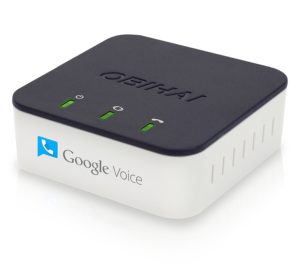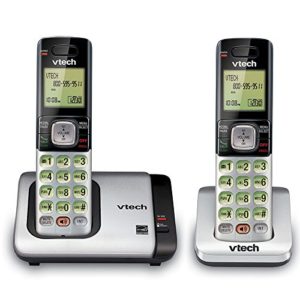VoIP
OBi200 1-Port VoIP Phone Adapter with Google Voice and Fax Support for Home and SOHO Phone Service
VoIP or Voice over Internet Protocol
VoIP stands for Voice over Internet Protocol and is a way for people to make and receive telephone calls using a broadband Internet connection rather than a regular phone line.
VoIP allows voice communications to be transported digitally through a network using the Internet Protocol standards instead of the traditional analog systems. Voice Over Internet Protocol converts the voice signal using a VoIP phone into a digital signal that then uses the internet to transmit the signal to the person you are calling, generally using the public Internet.
For effective communications VoIP transmissions must be fast enough to avoid a delay, even by milliseconds, in the processing and delivery of voice packets. Digital switching is more efficient, allowing for more phone calls, than traditional circuit switching phone calling but the loss, out-of-sequence delivery or non-delivery of data packets can adversely affect the quality of VoIP and this is an area that has been progressed significantly over recent years.
Some VoIP providers may only allow you to call other people using the same VoIP service, but more and more VoIP providers are allowing users to call anyone who has a telephone number – including local, long distance, mobile, and international numbers.
VoIP can also be provided by satellite, powerlines (broadband over power lines) and wireless (Wi-FI and WiMax).
VoIP is also the foundation for more advanced unified communications applications including Web and video conferencing that can transform the way business is conducted with VoIP technology now making such activities as video telephones more practical and cost effective.
VoIP can also mean big savings, especially for businesses, substantially lowering long-distance expenses. For instance, VoIP technology can allow a customer to select the area code they want for their phone number and potentially pretend to position their phone in an area remote from them but more relevant to customers or their main business associates limited to conventional phone technology.
VoIP phone systems can also offer features such as call blocking, call forwarding, caller ID, 3-way calling and many others, at a lower cost than conventional types of phone systems. The actual cost to include these phone features in a VoIP Service will vary depending on which Voice over IP service is chosen.
Plans from VoIP Providers can generally look inexpensive compared to regular telephone plans, but most VoIP services also require the cost of broadband Internet access. Generally this will mean paying separately for a cable modem service or digital subscriber line (DSL) service.
VoIP or Voice over Internet Protocol is fast becoming a popular technology by which both small and large businesses alike are able to effect radical changes to their communication systems. VOIP is delivering a new wave of capabilities to these enterprises. Mobility is one of these new features and has special applicability in health care settings and environments.
VoIP is a revolutionary technology that has the potential to completely rework the world’s phone systems. VoIP might just be the way more and more people will be talking over the phone in the near future.
Another Video with a bit more detail on the types of VoIP systems.
The computer generated voice technology is getting impressive!
There are a large number of VoIP providers available who offer a range of services for you to choose from and as always it pays to understaand your objectives and needs prior to selecting the one that best suit your needs.
A positive from this though is that initially it is possible to trial a provider using the basic services to establish if they are likely to meet your requirements.
VTech CS6719-2 DECT 6.0 Phone with Caller ID/Call Waiting, Silver/Black with 2 Cordless Handsets



